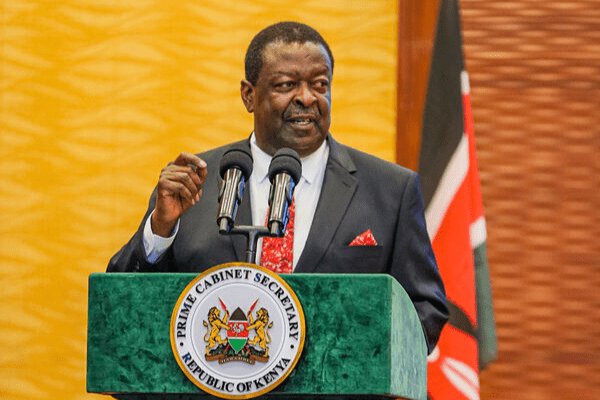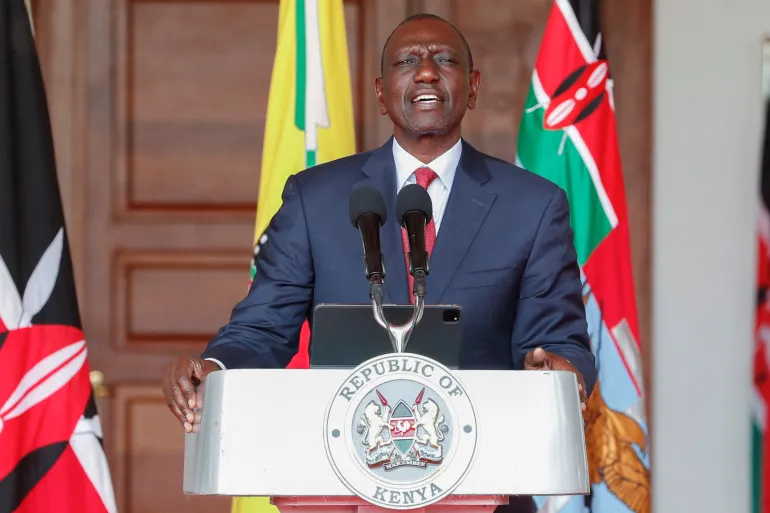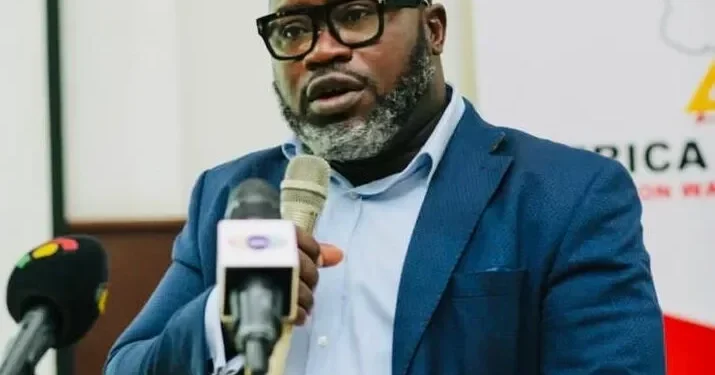In a dramatic move on Thursday, July 11, Kenyan President William Ruto announced the dismissal of almost all his Cabinet ministers, citing the need for a leaner and more efficient government.
This decision follows weeks of widespread protests against high taxes and alleged poor governance.
During a nationally televised address, President Ruto also relieved the attorney general of his duties, delegating ministry management to their permanent secretaries.
The president emphasized that this decision came after listening to public grievances and promised to form a broad-based government after further consultations.
“Upon reflection, listening keenly to what the people of Kenya have said, and after a holistic appraisal of the performance of my Cabinet and its achievements and challenges, I have, in line with the powers given to me by Article 152(1) and 152(5)(b) of the Constitution and Section 12 of the Office of the Attorney-General Act, decided to dismiss with immediate effect all the Cabinet Secretaries and the Attorney-General from the Cabinet of the Republic of Kenya except the Prime Cabinet Secretary and Cabinet Secretary for Foreign and Diaspora Affairs.”
William Ruto
The announcement arrives on the heels of three tumultuous weeks during which demonstrators stormed parliament on June 25 in response to a finance bill proposing tax hikes.
These protests have resulted in over 30 deaths and escalated into demands for President Ruto’s resignation.
Among those spared from dismissal is Prime Cabinet Secretary Musalia Mudavadi, a significant political ally.

President Ruto stated that the firings were based on a critical assessment of the Cabinet, asserting that the new government structure would be pivotal in accelerating and implementing radical programs.
These programs aim to address Kenya’s debt burden, boost domestic resources, expand job opportunities, eliminate waste, and tackle corruption.
Ruto’s initial Cabinet, appointed following his 2022 election victory, faced criticism for being populated with political allies rather than technocrats.
Notably, three ministers had resigned from elected positions to accept ministerial roles, while others were perceived as receiving political appointments after electoral defeats.
Several ministries, including agriculture and health, have recently been embroiled in corruption scandals involving fake fertilizer and fund misappropriation.
Protesters have accused the Cabinet of incompetence, arrogance, and lavishness amid a national crisis of high taxes and living costs.
These grievances have fueled calls for President Ruto’s resignation, despite his pledge not to sign the contentious finance bill.
In a bid to address these issues, President Ruto apologized for the “arrogance and show of opulence” exhibited by some legislators and ministers, taking personal responsibility for the situation.
He also announced stringent austerity measures, such as dissolving 47 state corporations with overlapping functions to cut costs and withdrawing funding for the First Lady’s office.
Ruto’s Move Commended
Herman Manyora, an analyst and commentator, lauded the Cabinet dismissal as a “bold move” essential to mitigating national discontent.
This marks the first instance under the new constitution where a sitting president has dismissed Cabinet ministers.
The last comparable action occurred in 2005 when then-President Mwai Kibaki fired his ministers following a failed referendum, an effort to reassert his political dominance.
Meanwhile, David Ndii, Ruto’s economic adviser and chair of the Presidential Council of Economic Advisers, expressed indifference towards potentially losing his position, remarking that he would be relieved if dismissed.
President Ruto’s sweeping changes signal a significant shift in Kenya’s political landscape as the government seeks to regain public trust and address the pressing economic challenges facing the nation.
READ ALSO: Atta Akyea Questions Committee’s Report on Leaked Tape Allegations






















